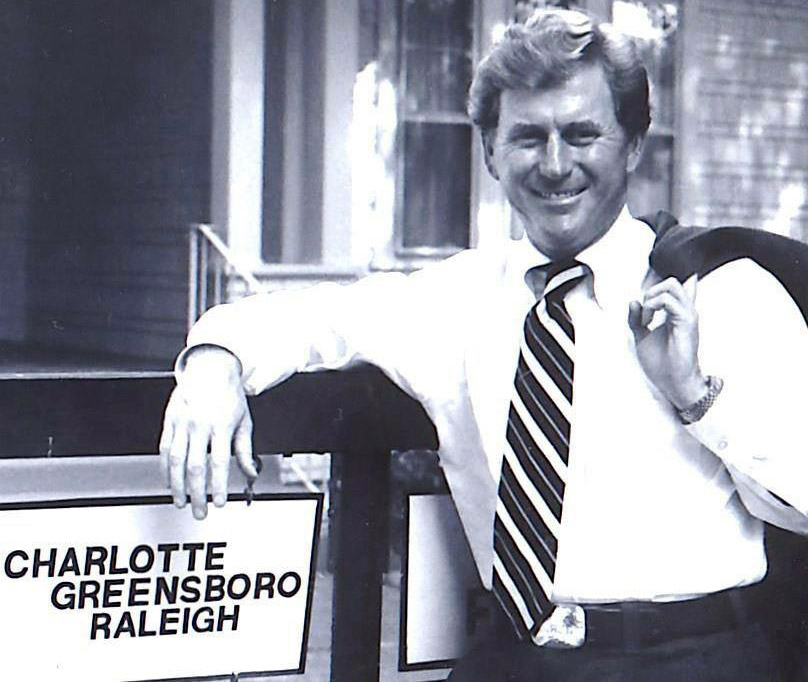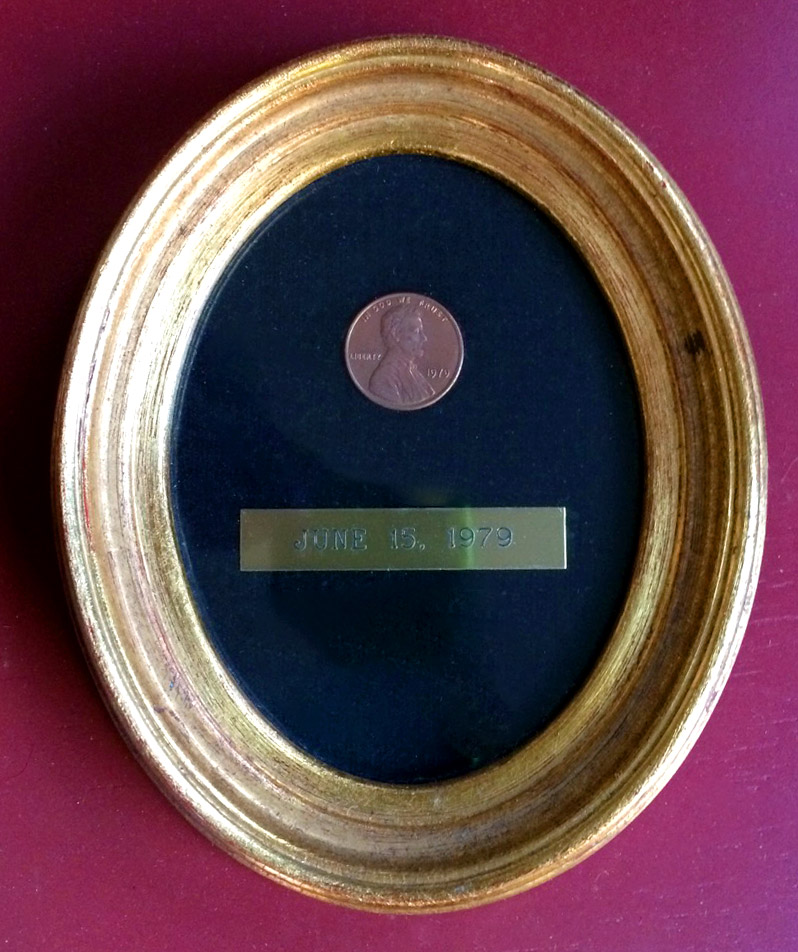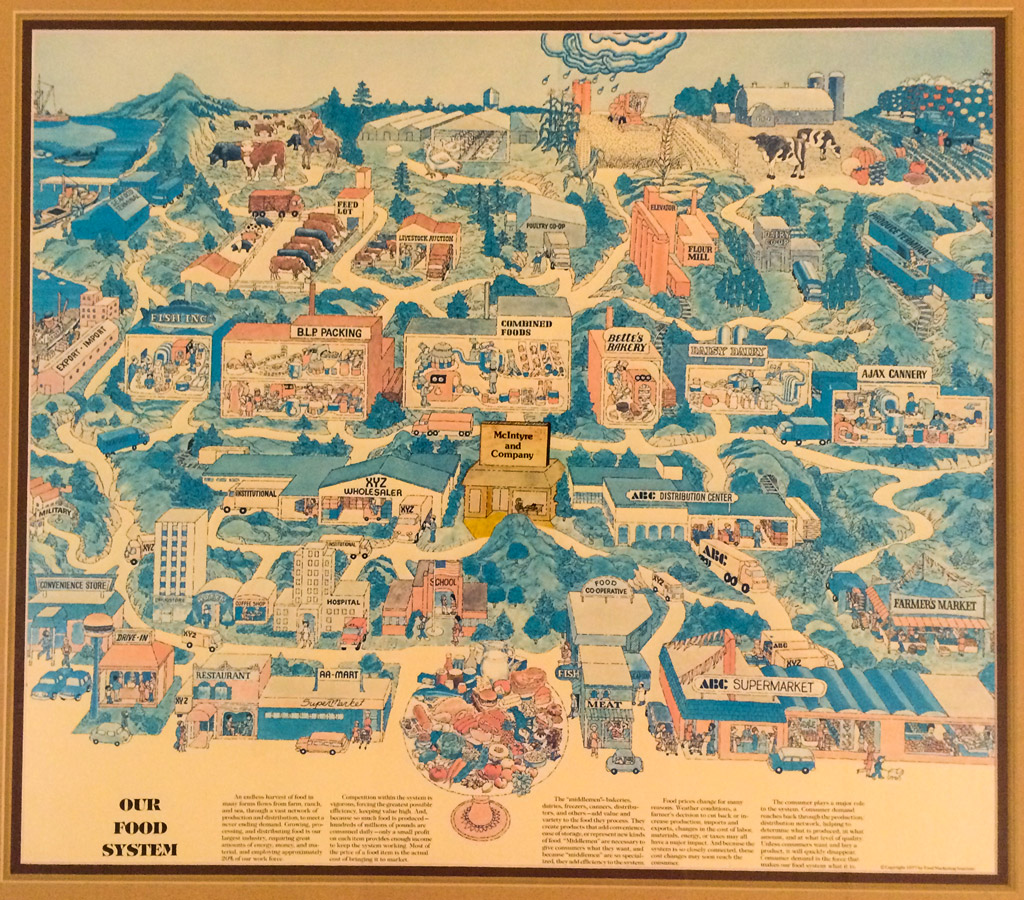
“You’ve got to know when to hold ’em
Know when to fold ’em
Know when to walk away
And know when to run.”
– Kenny Rogers in 1978, written by Don Schlitz.
They say, “You don’t know what you don’t know” and I didn’t know what I didn’t like until it made me sick. That is when I had to fold ‘em and walk away.
Kenny knew what he was talking about, singing The Gambler.
I walked away from a cushy career in Corporate America for the unsure landscape of small business.
McIntyre and Company: the start, before the start
Married and with two young children, I took a big step to enter the world of small business. I had spent 17 years with all of the privileges of upper management in the 1960’s and 1970’s. Those years were educational and rewarding but I was ready for something new; plus, there was a side of Corporate America I didn’t want to be part of.
Going back a few years to 1974, at the young age of 33, I became the unknowing “hit man” for a national company – remaking their sales team. I had been recruited into a mid-size Chicago based company because of my Procter and Gamble training and sales management experience. I was to run a national team – to build it as I saw fit. That sounded great going in but the plot thickened as the months unfolded.
What I found was an organization that had been nurtured by the still popular mushroom theory of management. Keep them in the dark, cover them with manure and hope they grow. They were untrained, unmotivated, and un-loved.
I knew I could make the changes senior management wanted, but it would be slow. It would take both time and money. But they had a different idea, they wanted change faster and cheaper.
A wall in my office was dominated by a board holding the complete 120 name hierarchy of regions, districts and individual sales representatives. The company President would ask me to review the names on the wall. Who fit our new image? Who did not? How old was he, what was his future? How much did he cost us each year?
The questions were more about style than substance. It was not about what the manager had done in the past but how he looked today and what we judged his performance would be in the future. But most important of all, did he fit the “look” of our new model?
Unless all the answers lined up, the president slid the name out of its slot and turned it over, facing the wall. Without his saying a word – I knew my unpleasant task.
I would get on a plane, meet with the middle age manager and explain that his 20-30 year career with the company was over. I would thank him for doing everything asked of him over the years but explain that it was now time for both of us to make a new start. He (never ‘she’ in those days) would be replaced with a 25-30 year old with double the swagger but at half the price tag.
I was delivering for management – quick change plus saving them money.
The targeted manager knew why I was in town when I called to ask for a meeting – my reputation had spread. Yes, I could negotiate some: more severance, paid health insurance, but it was over. Period. The departing manager would ask, “Why?” Try as I could, there was never a good answer.
I came to dread those meetings. This distasteful part of my job began to take a toll on me physically and before long my back was hurting. Not much at first, but soon it took me extra time to just get up from my chair or out of a car.
My doctor sent me to a specialist. I was almost in tears when the surgeon said an operation would not solve my pain. He prescribed muscle relaxers.
The muscle relaxers helped. Adding alcohol to the prescription helped also – not a good choice.
Even though my performance reviews were glowing, I was not happy. Folks were nervous and scared. It is hard to perform well in those conditions. My new replacement managers spent time trying to build trust with their staff but they couldn’t give them any guarantees.
A company is not healthy when its people are viewed as a disposable commodity and recycled like the machines in the plant. This company was sick, and so was I.
It was time for me to fold ‘em (to quote Kenny).
Once I had reached that decision the back pain got better. I could sleep at night and wear a smile.

Then the universe stepped in and showed me how to “walk away.” An old boss from Procter and Gamble offered me an opportunity with RJR Foods in Winston-Salem, NC. In 1976 our family moved from Chicago to Winston-Salem. Both were major changes: RJR Foods used a different style of selling and Winston-Salem used a different style of talking. But both were good for me.
RJR Foods sold their products to the retail grocery trade using a network of independent food brokers. I had seen them before. They were always happy and seemed to get along with the customers very well. They wore plaid sport jackets, drove big fancy cars and had a ready credit card for entertaining. They were nothing like the poker faced, three piece suited, P&G types…like me.
Brokers ran independent businesses in their own markets. They were pillars of their community. They had people working with each major retail chain and they knew exactly what needed to be done to make every sale, big or small. Folks love to buy from happy folks.
In 1976, as a Director of RJR, I was responsible for these guys. Yes, we had zone and region sales managers but the real selling work was done by the brokers.
Now I understood why competing against them with P&G had been so difficult. We were too young, too inexperienced, too stiff, too boring. We didn’t grow relationships but instead moved people around the country too quickly to develop depth in their community.
I now knew what I had not known! I could be part of this entrepreneur culture running a business and caring about my people just as much as my profits. It was time “to run” into this new world.

My first step was moving to Charlotte with Joyce and our two young children in 1979. A Raleigh based food broker needed to start an office in Charlotte and I was the man. Charlotte was the hub of the Carolinas. I would travel less. Spend evening at home. Go to our kids school and sports events. I would build my team, my way.
But the Raleigh brokers plans were larger than their pocketbook, plus I am sure I was not the easiest individual to manage. In six months it was over – I was fired. The company folded soon after. I had three options: go back to corporate life, join another broker, or start my own business.
My choice was clear. It was time: “If not now, when?”
McIntyre and Company began in May of 1980 with no clients, no customers and just one employee in a small office on East Boulevard in Charlotte, NC.
What I had going for me was the emotional support of my wife and young children, a willing banker, and my ambitious, venturesome attitude.
My one employee was a women who had worked for me with the other broker. She walked out the door when I was fired and when I opened my new office she showed up – to be my secretary.
I needed sales, not a secretary, so I asked Pat if she could sell. She jumped in and never looked back. She lasted a full year and helped get us going.
When you start with nothing, anything is a step up. I was appointed to represent a few manufacturers but their products were not house-hold names. I had fresh orange juice, general merchandise with glue that didn’t hold very well, a few beauty products like shampoo with strange fragrances and some roast beef that while flavorful was hard to chew and swallow. In the beginning, my company couldn’t generate enough money to pay the bills or begin to pay me a salary.

Our daughter invited some friends to a sleep-over and I overheard her tell them, “we’re not poor, we just don’t have any money right now.” She summed it up well.
Even though my credit line at the bank was about dry and the credit cards loaded down I was on my way. This could work.
Without money or anything of value to sell, I was determined. Most were betting against me, my largest customer couldn’t even remember my name.
Stay with me and I will pick it up here next week.
Have you started a business? Why did you want to go out on your own? Were you in the red at first? When did you taste success?
How did you finance your business? Did you get personal loans or mortgage your house?
How would you feel if your 38 year old son, with a wife and two kids, started a business? What do you think my non-working wife said?
As always, the conversation starts here.
“In the ordinary choices of every day we begin to change the direction of our lives.”
– Eknath Easwaran

First off, I’ve never heard of the “mushroom treatment” in such eloquence!
Thanks for sharing these experiences. It really does seem that the kernel of every entrepreneur has to be comprised of desiring change from the comfortable norm, finding hope in even the smallest of victories or defeats that are able to be digested, and a supportive family.
Looking forward to the next one.
Bruce, I saw similar circumstances going on at DuPont. We had a huge synthetic fiber business grounded in the textile industry. That industry as you know migrated overseas. Price was important as were relationships but ultimately the lowest prices and best relationships could not save our business nor the business of our customers. A new dynamic was also surfacing – “increased shareholder value.” In other words your job became reduce costs and do everything you can do to increase the price of the stock. Today the textile industry is a mere shadow of its former self but increasing shareholder value… Read more »
Geoff,
It is surprising to me that the “mushroom theory” of management is still around. Yes, I cleaned up the wording some for a family friendly conversation.
Your words on the rewards of entrepreneurial victories and defeats are well spoken and from your heart. You are correct.
Thanks for being part of the conversation.
– Bruce
Richard,
Greed is not good.
Are some of the very high-end textile people making a comeback in the Carolinas? I am seeing more “Made in the USA” logos on merchandise. Patagonia, while not made in the USA, is doing wonderful things for the planet, their workers and customers from what I have seen. True?
Thanks for your comment and for being such a loyal reader of Choices Do Matter.
– Bruce
Bruce These are the details of the Bruce story I never knew. I suggest the mushroom treatment included –after a sufficient amount of time you cut their heads off and caned them. I started my South Park practice in 1989 at age 37 after serving in a large firm as a youngest person to become a partner at 29. I to was hard to supervise —must be our red hair. My father was very worried and tried to talk me out of resigning. I told him too late because I had already mailed a resignation letter to everyone I knew… Read more »
Starting a business was a terrifying moment for me. I gave up a regular paycheck, benefits, security. For what? Uncertainty, potential financial ruin and a host of other scary things. So I just threw myself into my job and did the things I did best. Now, 14 years down the road, it was the best decision I ever made.
Wade, ownership is not for everyone. You have done well – throwing yourself into your work can be best.
– Bruce
Great story, Bruce…thanks for showing the vulnerability of such a transition!! Looking forward to part 2…
Barbara, There was much “vulnerability” for many of the early years. There are other words that come to mind as well, like “stupid” and “irresponsible” to call out just two. But, I knew that of the choices: return to corporate life, find another broker, or start my own business, the best choice for me and my family – longer view – was to make a start of my own company. I was right, but it could have turned out differently. I can also see how that choice has shaped who I am today, 35 years later. Thank you for being… Read more »
Steve Wade,
I missed your comment, sorry. I did not fully know your start-up story either. We have more in common than just our red hair, I think. Thanks for your help over the years and thanks for putting up with my Lemonade Accounting. Your client and friend,
– Bruce